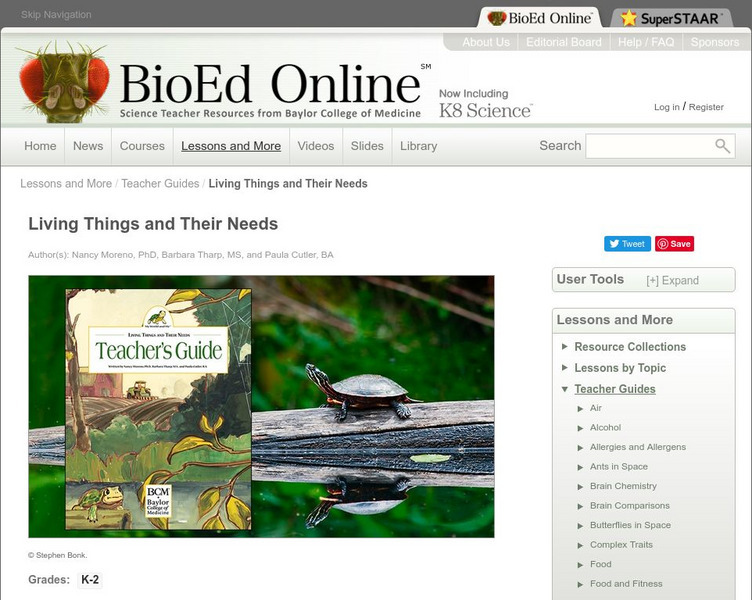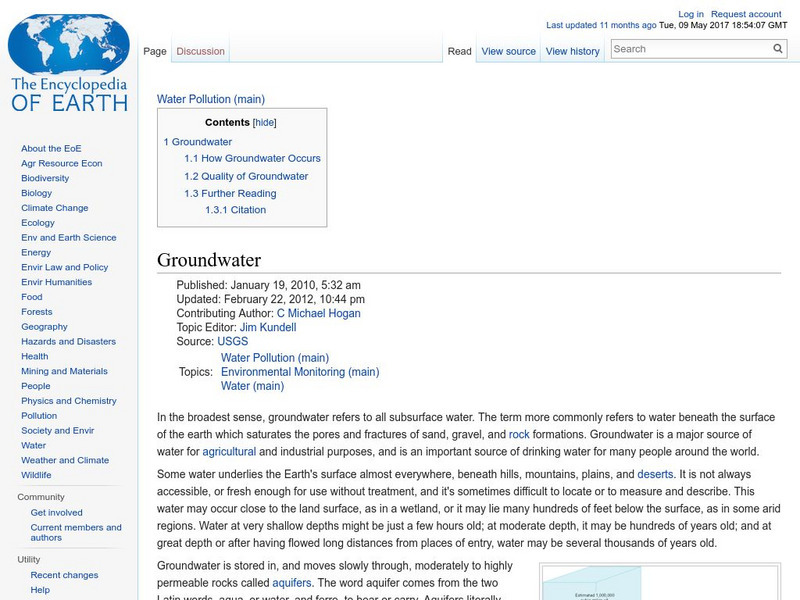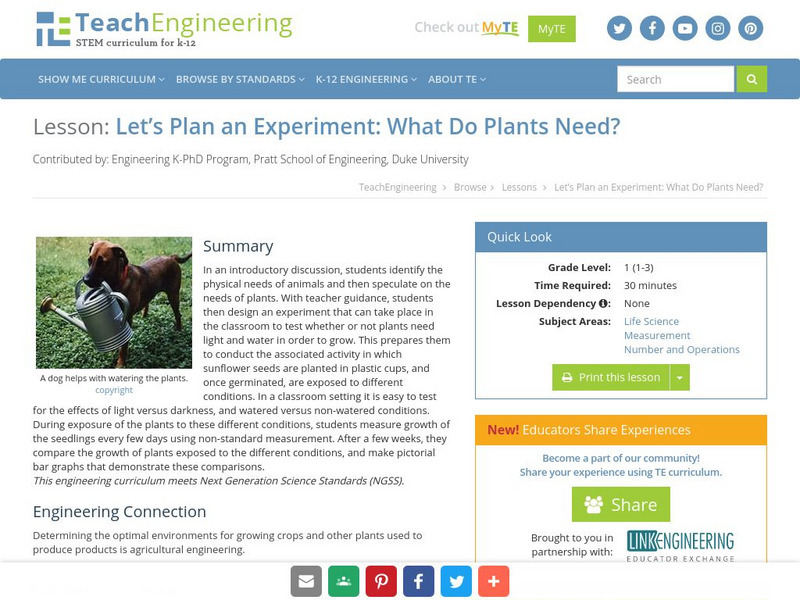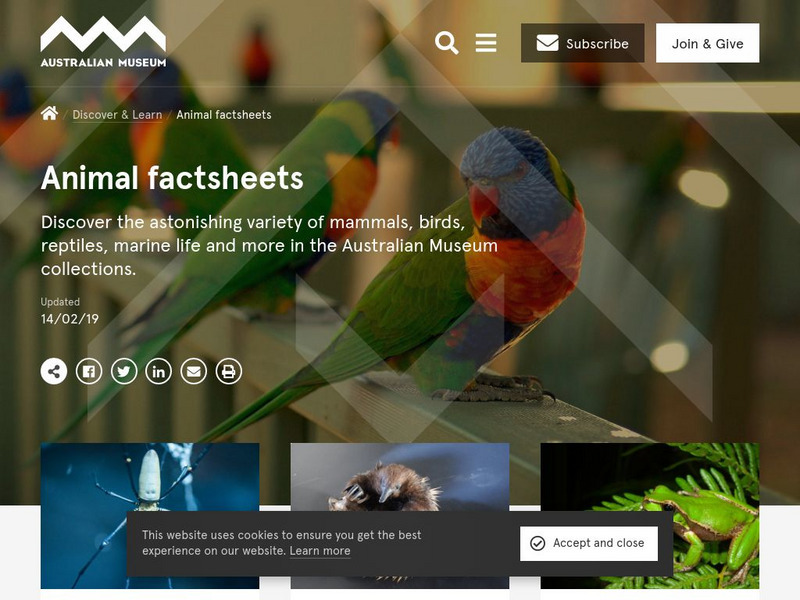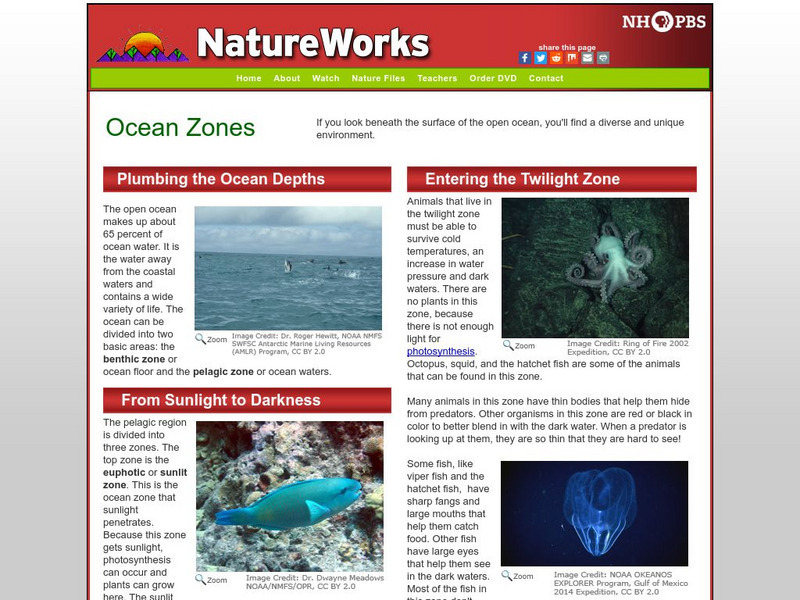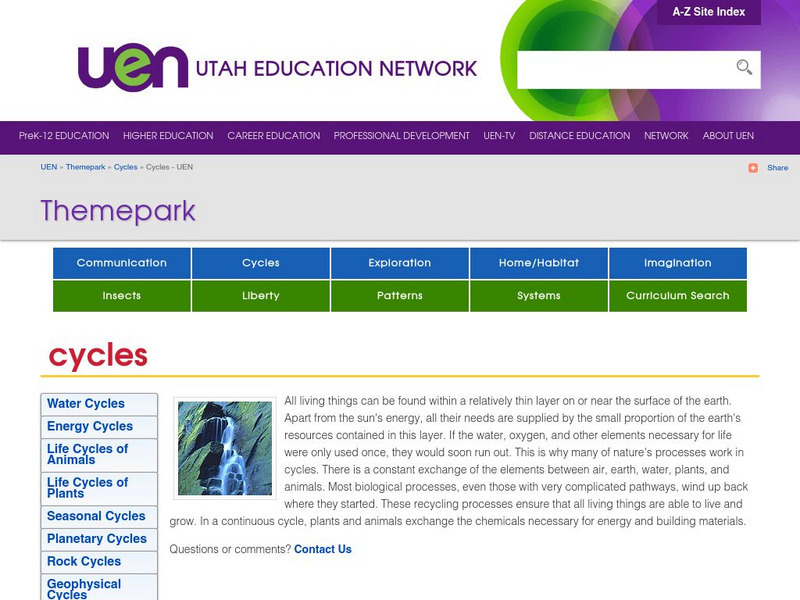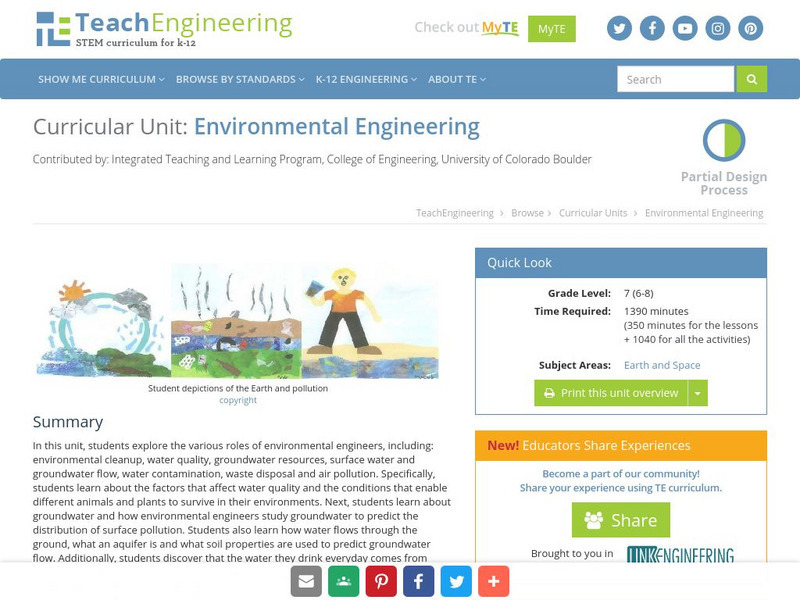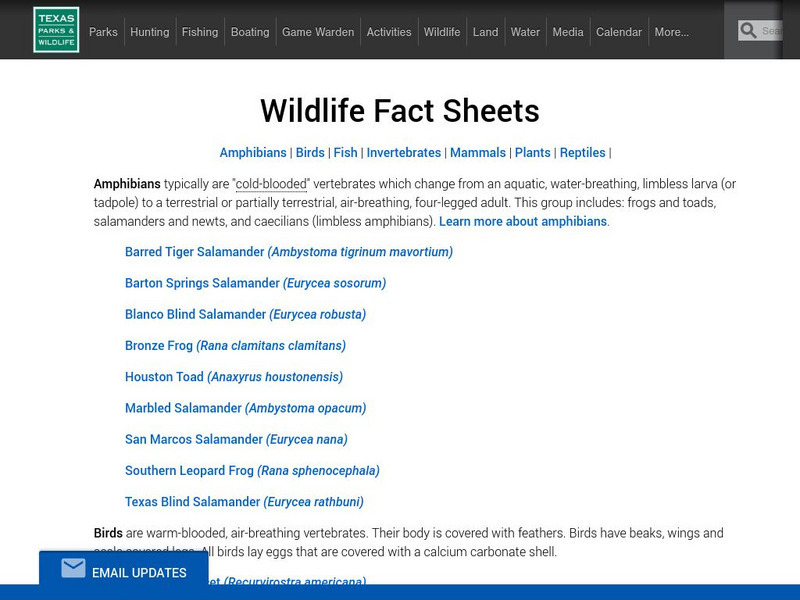Hi, what do you want to do?
PBS
Pbs Learning Media: Animals and Plants Can Live in a City!
In this interactive lesson, students learn that animals need air, food, water, and shelter, while plants need air, sunlight, and water. Students watch videos and engage with drawing and sorting activities to reinforce their learning....
PBS
Pbs Kids: Water Safari
Students are challenged to search for and find plants and animals that live in a mangrove forest.
My Science Site
Pond Water Plants and Animals [Pdf]
This resource depicts some pond water plants and animals one might happen to spot while peering through their microscope lense. This resource is in PDF form; requires Adobe Reader.
BioEd Online
Bio Ed Online: Living Things and Their Needs: We Need Water
This lesson focuses on living things' need for water. Students make lemonade and learn that water can be found in liquids other than a glass of water, and is also found in plants. The lesson can be downloaded in PDF format.
BioEd Online
Bio Ed Online: Living Things and Their Needs Teacher's Guide
This is a free downloadable teacher's guide (PDF) to teach young children (grades K-2) about living things and their needs.
Other
Southern African Water Crisis: Some Grassland Facts
Here you can read a fact sheet on South African grasslands. Content includes a look at origins, water supply, plants and animals, economics, and current conservation status.
Encyclopedia of Earth
Encyclopedia of Earth: Water Pollution: Groundwater
Explains what groundwater is, how and where it occurs, how the quality of our groundwater is being affected by human activities, and the detrimental impact this has on plants and animals. (Updated: February 22, 2012)
Encyclopedia of Earth
Encyclopedia of Earth: Adaptations of Desert Plants
The ways in which plants have adapted through evolution in order to survive in a desert environment are described in this article. Getting water and retaining water are key to their survival, including protecting themselves from animals...
US Geological Survey
U.s. Geological Survey: The Usgs and Science Education
"Explore things on, in, around and about the earth," with this web site dedicated to K-12 education from the United States Geological Survey. Homework help, science topics and fun learning games for students in Kindergarten through High...
Georgia Department of Education
Ga Virtual Learning: Archetypes: Themes and Situations [Pdf]
This 24-page PDF presentation focuses on Archetypes including themes and situations. It includes the discussion of themes such as supernatural world, human relationships, forces of nature, and many more.
Alabama Learning Exchange
Alex: Race for Life: Plant Adaptations
This is an outdoors, hands-on activity. Create a short race course to engage learners in physical activity while drawing comparisons to the plant kingdom. This activity serves as an introductory to the impact small changes can have on...
TeachEngineering
Teach Engineering: Who Needs What?
The teacher leads a discussion in which students identify the physical needs of animals, and then speculate on the needs of plants. With guidance from the teacher, the students then help design an experiment that can take place in the...
Australian Museum
Australian Museum: Animals
This online site for the Australian Museum introduces the nature and culture of this unique continent. This particular section focuses on the creatures of Australia including spiders, fish, birds, reptiles, mammals, insects, frogs,...
TeachEngineering
Teach Engineering: How Clean Is That Water?
This lesson plan helps students understand the factors that affect water quality and the conditions that allow for different animals and plants to survive. Students will look at the effects of water quality on various water-related...
PBS
Nh Pbs: Nature Works: Ocean Zones
Discover more about the underocean environment at this site that surveys animals, environmental factors such as light and temperature, currents, animals, plants, and the like.
Utah Education Network
Uen: Themepark: Cycles
This is a large collection of resources on cycles of nature and the Earth. There is a constant exchange of the elements between air, earth, water, plants, and animals. Most biological processes wind up back where they started. These...
TeachEngineering
Teach Engineering: Biodomes
Students explore the biosphere's environments and ecosystems, learning along the way about the plants, animals, resources and natural cycles of our planet. Over the course of lessons 2-6, students use their growing understanding of...
BBC
Bbc: Gcse Bitesize: Adaptations, Interdependence and Competition Aqa
The abundance and distribution of organisms in an ecosystem is determined by biotic and abiotic factors. Animals and plants have adaptations to allow them to compete for resources.
Smithsonian Institution
National Museum of Natural History: Ocean Planet
Detailed website that was a companion to a 1995 traveling exhibit of the Smithsonian. Links to lesson plans and other educational materials are at the bottom of the page. Enter the exhibition to explore the world of the ocean.
TeachEngineering
Teach Engineering: Environmental Engineering
In this unit, students explore the various roles of environmental engineers, including: environmental cleanup, water quality, groundwater resources, surface water and groundwater flow, water contamination, waste disposal and air...
Globe
The Globe Program: All About Earth: Our World on Stage [Pdf]
This delightful storybook provides young learners an understanding of how the Earth's processes work together. The students of an elementary classroom have been making costumes and practicing lines. Each student is playing the role of a...
Texas Parks and Wildlife
Texas Parks & Wildlife Department: Wildlife
Here you will find a description of many types of wildlife species living in Texas. Clicking on the underlined words will direct you to links to related topics. Browse through the website (land and water) to discover aquatic species and...
PBS
Pbs Kids: Eekoworld
Interactive website from PBS Kids teaches students age 6-9 about a number of ecological topics and the role they play in protecting the environment. Topics include recycling, the environment, air and water, plants and animals, and the...
McGill University
Mc Gill University: Canadian Biodiversity: Ecozones: Arctic Archipelago Marine
The Arctic Archipelago Marine ecozone includes Hudson Bay and most of the water surrounding the islands of Nunavut and the Northwest Territories. This is a brief, concise description of the location, climate, geology, and flora and...








